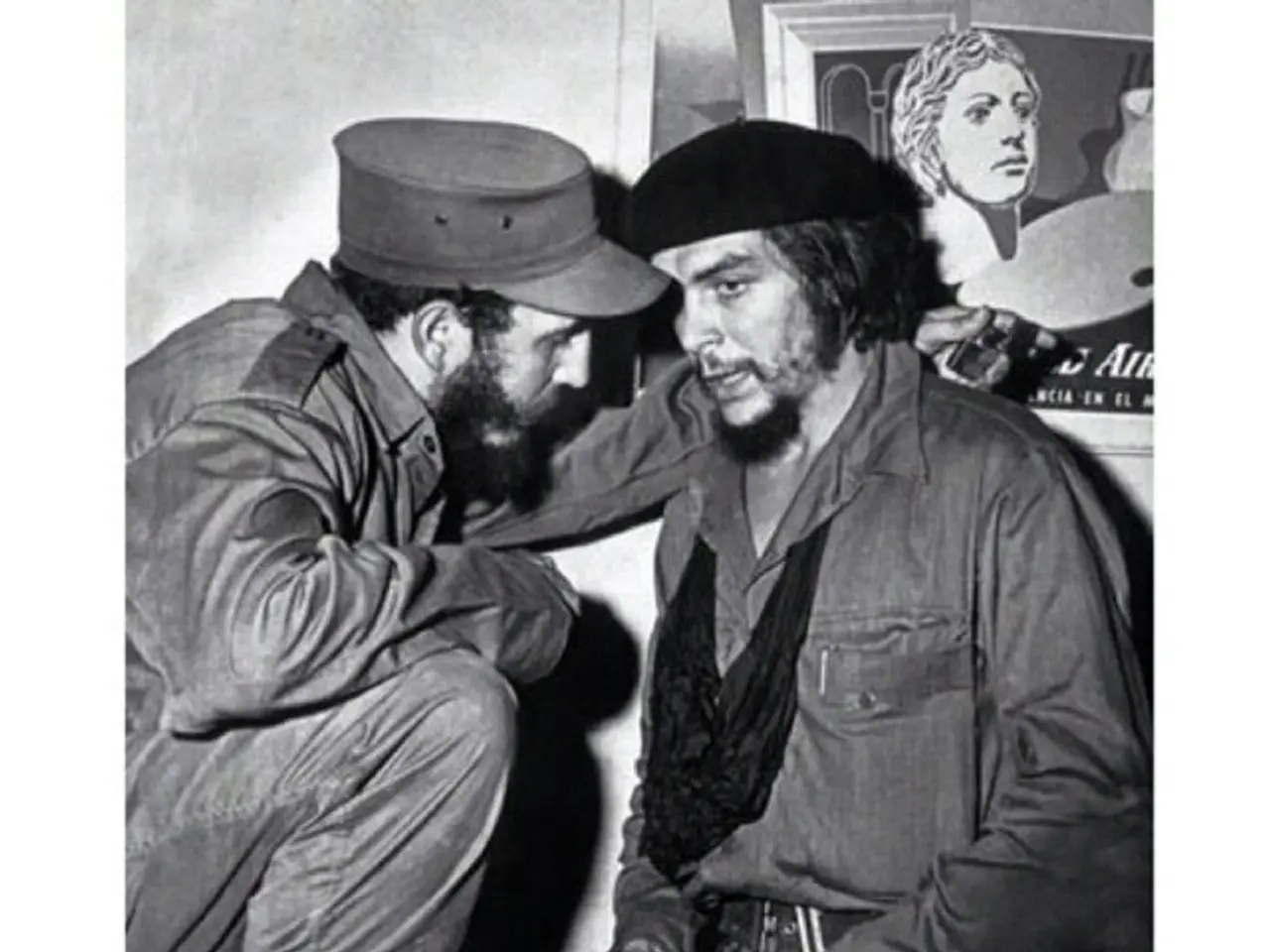Europe as a Fallback: India's Contingency Strategy in Trump's Reign
India and Europe are exploring opportunities for a closer partnership, with technology cooperation potentially offering the greatest transformative potential. This collaboration could help address climate change while bolstering Indian industrial capabilities in the realm of green technology.
India, as a founding member of BRICS and a member of the SCO, is seeking to play a balancing role, refusing to cede geopolitical ground to China and Russia. European leaders share India's concerns about Chinese economic practices and security threats, and the return of Trump poses a second structural challenge to India.
India aims to transition to green sources such as solar and hydrogen in the coming decades, but it bristles at measures like the EU's Carbon Border Adjustment Mechanism, viewing it as a form of green protectionism. Instead, India is looking towards global south cooperation in multilateral forums and advocating for fair rules in areas like climate and trade, positioning itself as a leader for the global south.
India's economy remains reliant on coal to meet over half of its energy needs and highly dependent on energy imports. To push its export-driven economy, India has forged stronger international partnerships, including deals with Australia, the UAE, the UK, and European Free Trade Association countries.
China, however, is facing challenges due to demographic issues and fiscal imbalances associated with its state-led growth model, potentially offering India an opportunity to assert its presence on the global stage. Modi has set the target of $2trn worth of exports by 2030, split into $1trn each of goods and services.
The EU-India Trade and Technology Council, despite its slow start, provides a plausible institutional framework for advancing cooperation in areas from AI to quantum computing and digital infrastructure. India and Europe have also agreed to develop a fully fledged defense and security partnership, although it will necessarily be more limited than India's partnership with the US.
Long-awaited plans for an India-EU free-trade agreement should help to start the process of deeper partnership, if it can be agreed in time for a planned Europe-India summit in early 2026. India finds the best opportunities to balance its risks in a multipolar world with European partners through strategic partnerships, focusing on shared values such as democracy, rule of law, and human rights, while maintaining strategic autonomy to avoid rapid escalation with China.
Simultaneously, India sustains strong relations with Russia and other Global South countries to preserve its multipolar vision without undermining its independence. India has launched I2U2, an economic "quad" consisting of India, Israel, the UAE, and the US, to attract investment and promote regional cooperation.
Defense technology cooperation can provide alternatives to legacy Indian suppliers, and Europe's response to geopolitical events, such as the development of a "geopolitical Europe," have led India to view Europe as a more credible international partner. However, India's federal model poses challenges for business investors, as important laws are decided at the state level rather than in New Delhi.
India's consumer goods market is experiencing rapid expansion, creating attractive opportunities for both domestic companies and international brands. The pharmaceutical industry has emerged as a global manufacturing hub for generic drugs and active ingredients.
India sees the current moment of global upheaval as more opportunity than threat, and views a multipolar future as protecting its strategic interests, providing new opportunities for expanded influence, and potentially even realizing a more specifically Indian vision of global order. European investment in India remains low, suggesting significant untapped potential.
The ascendance of the BJP under Modi has defined the Indian political landscape in recent years, and the trinity of Hindi, Hindutva, and Hindustan has gained prominence. However, Modi's policies risk tarnishing India's position as the world's largest democracy, a core source of soft power that has historically differentiated it from authoritarian competitors like China, while enhancing its appeal to Western partners.
India will double down on multi-alignment to maintain flexibility to respond to changing circumstances without being locked into alliances or rigid partnerships. As European nations bolster defense spending to adapt to a more serious geopolitical environment, they have convinced Indian policymakers that partnership with Europe can deliver tangible security benefits, in addition to economic and technological opportunities.
However, European leaders must take care to avoid short-term policies that seek to win favor in Washington at the expense of their reputation with emerging partners elsewhere, as New Delhi is likely to hear from China and Russia, given their critical views of the West in general. India's military limitations constrain its ability to project regional power, with modernization efforts proceeding too slowly to close capability gaps.
Previously, hopes for Europe-India progress have often fallen short, and divisions remain clear over issues like Ukraine. Cross-border terrorism rooted in Pakistan remains another significant challenge, making counterterrorism a cornerstone of engagement with international partners.
India has made improvements in terms of barriers to business investment, jumping from 134th to 63rd position in the World Bank's Doing Business index between 2014 and 2019. India promotes indigenous technological solutions, with a focus on its digital public infrastructure (DPI), which includes personal identification systems, digital payment platforms, and welfare distribution.
India has launched initiatives such as its Semiconductor Mission and hosted the 2026 AI Impact Summit to attract international partners and promote technological innovation. India remains heavily dependent on Chinese imports and supply chains, despite efforts to promote domestic production, which constrains its climate transition strategy.
The report was researched and drafted with support from Anunita Chandrasekar. The author and researcher are grateful to those who provided input and insights during the research process. The paper is part of Re:Order and was made possible with support from Stiftung Mercator, but does not necessarily represent the views of it. The author is a distinguished visiting fellow at the our website. India is known for intransigence in multilateral fora, holding up several World Trade Organisation reforms, with agriculture being an especially sensitive sector.
This article is a summary of the research and does not contain all the details and nuances present in the original report. Readers are encouraged to refer to the original report for a comprehensive understanding of the topic.







